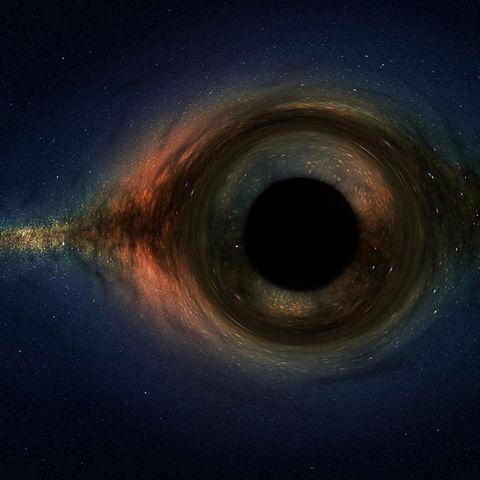UFO Buster Radio News – 273: Planet 9 aka Nibiru May Be A Black Hole At The Edge Of Our Solar System

Descarga y escucha en cualquier lugar
Descarga tus episodios favoritos y disfrútalos, ¡dondequiera que estés! Regístrate o inicia sesión ahora para acceder a la escucha sin conexión.
Capítulos
Descripción
Planet Nine could be a primordial black hole, new research suggests Link: https://phys.org/news/2019-09-planet-primodial-black-hole.html The hypothetical Planet Nine, assumed to be lurking somewhere in the outskirts of our solar system, may...
mostra másLink: https://phys.org/news/2019-09-planet-primodial-black-hole.html
The hypothetical Planet Nine, assumed to be lurking somewhere in the outskirts of our solar system, may not be a planet at all. A new study, published September 24 on the arXiv pre-print server, suggests that the mysterious and still undiscovered object might be a primordial black hole.
Primordial black holes (PBHs) are old and relatively small black holes that emerged soon after the Big Bang. They are thought to have been formed as a result of density fluctuations in the very early universe. It is believed that PBHs with the lowest mass have likely evaporated. However, those with larger masses may still exist, evaporating at the present epoch—even though they have been never directly observed.
Astronomers Jakub Scholtz of Durham University and James Unwin of University of Illinois at Chicago, assume that PBHs could reside even closer to us than we think. In a recently published paper, they ponder the possibility that the elusive Planet Nine, theorized to be orbiting the sun at a distance between 300 and 1,000 AU, could be such an old and compact black hole.
Explaining their intriguing hypothesis, the researchers focus on two unsolved gravitational anomalies of similar mass: anomalous orbits of trans-Neptunian objects (TNOs) and an excess in microlensing events. What is interesting is that both events are due to objects with masses estimated to be between 0.5 and 20 Earth masses.
Capture of a free-floating planet is a leading explanation for the origin of Planet Nine, and we show that the probability of capturing a PBH instead is comparable," the astronomers wrote in the paper.
However, it could be difficult to confirm this theory, as such a hypothetical PBH, with a mass of around five Earth masses and a radius of about five centimeters, would have a Hawking temperature of approximately 0.004 K, making it colder than the cosmic microwave background (CMB). Therefore, the power radiated by a typical PBH alone is minuscule, which makes it hard to detect.
Primordial black holes are a hypothetical type of black hole that formed soon after the Big Bang. In the early universe, high densities and inhomogeneous conditions could have led sufficiently dense regions to undergo gravitational collapse, forming black holes. Yakov Borisovich Zel'dovich and Igor Dmitriyevich Novikov in 1966[1] first proposed the existence of such black holes. The theory behind their origins was first studied in depth by Stephen Hawking in 1971.
The Nibiru cataclysm is a supposed disastrous encounter between the Earth and a large planetary object that certain groups believed would take place in the early 21st century. Believers in this doomsday event usually refer to this object as Nibiru or Planet X.
Show Stuff
The Dark Horde, LLC – http://www.thedarkhorde.com
Twitter @DarkHorde
TeePublic Store - Get your UBR goodies today! http://tee.pub/lic/2GQuXxn79dg
UBR Truth Seekers Facebook Group: https://www.facebook.com/groups/216706068856746
UFO Buster Radio: https://www.facebook.com/UFOBusterRadio
YouTube Channel: https://www.youtube.com/channel/UCggl8-aPBDo7wXJQ43TiluA
To contact Manny: manny@ufobusterradio.com, or on Twitter @ufobusterradio
Call the show anytime at (972) 290-1329 and leave us a message with your point of view, UFO sighting, and ghostly experiences or join the discussion on www.ufobusterradio.com
For Skype Users: bosscrawler
Información
| Autor | The Dark Horde Network |
| Organización | The Dark Horde Network |
| Página web | - |
| Etiquetas |
Copyright 2024 - Spreaker Inc. an iHeartMedia Company
